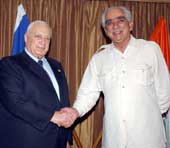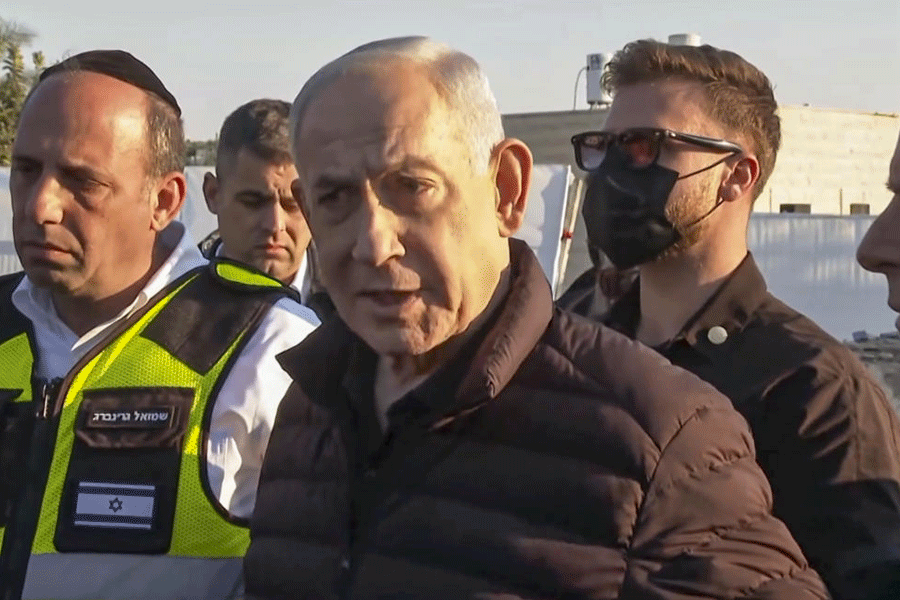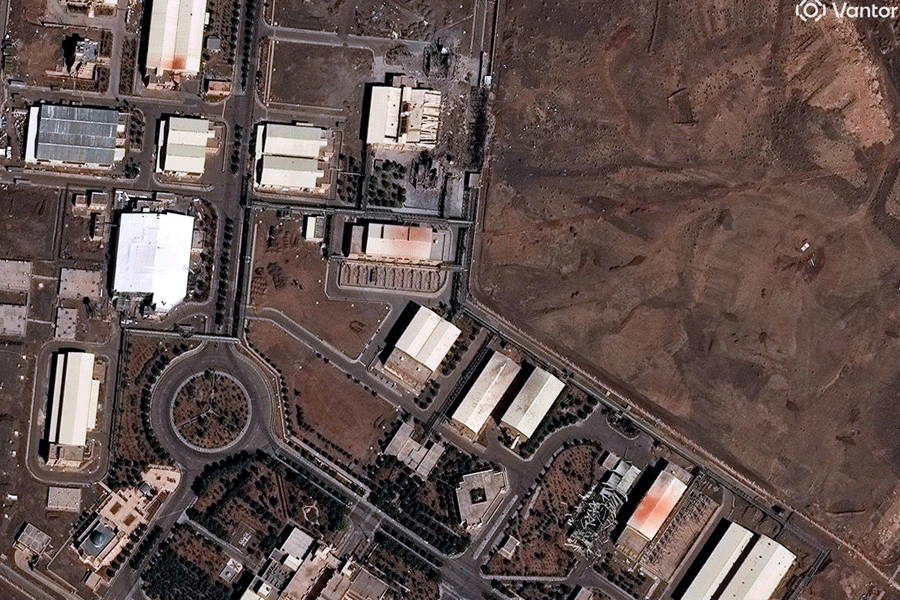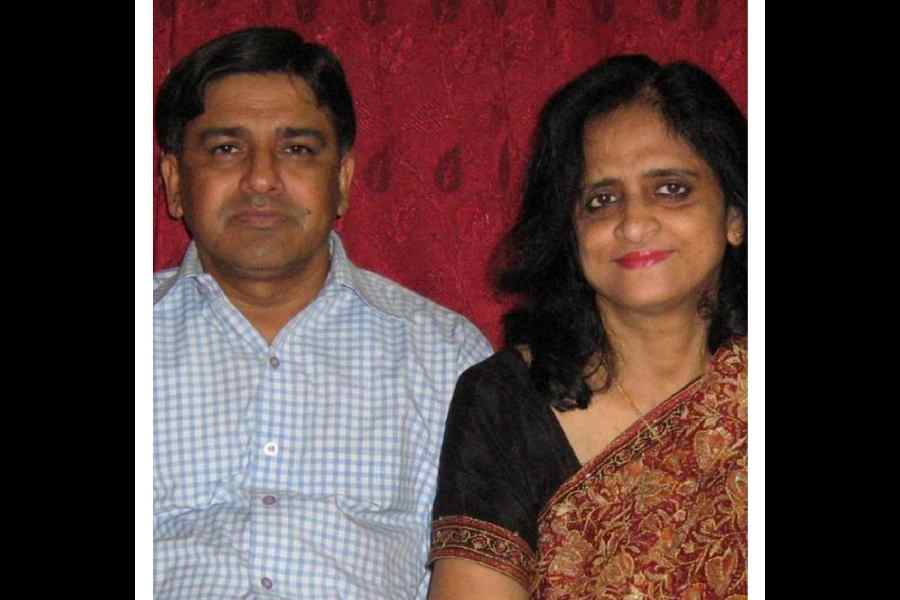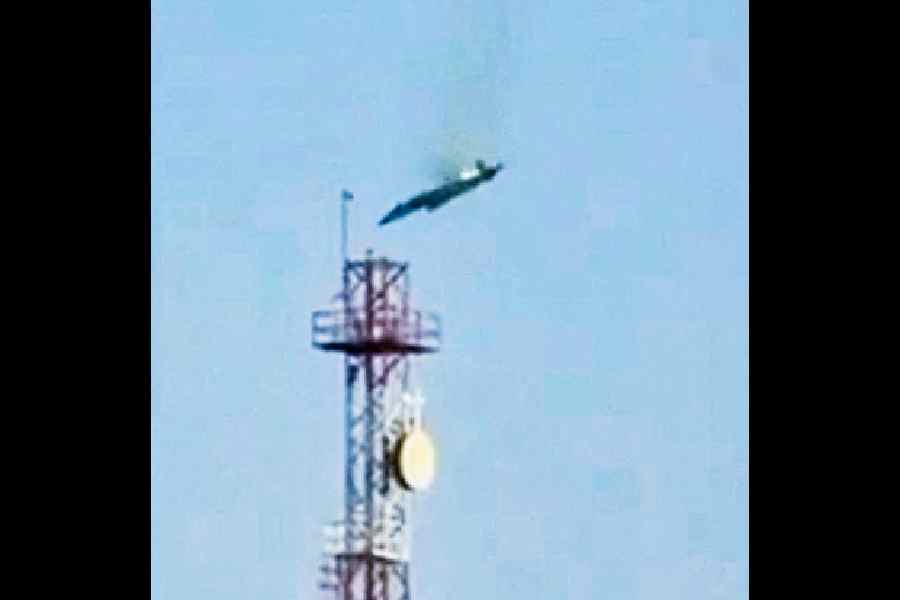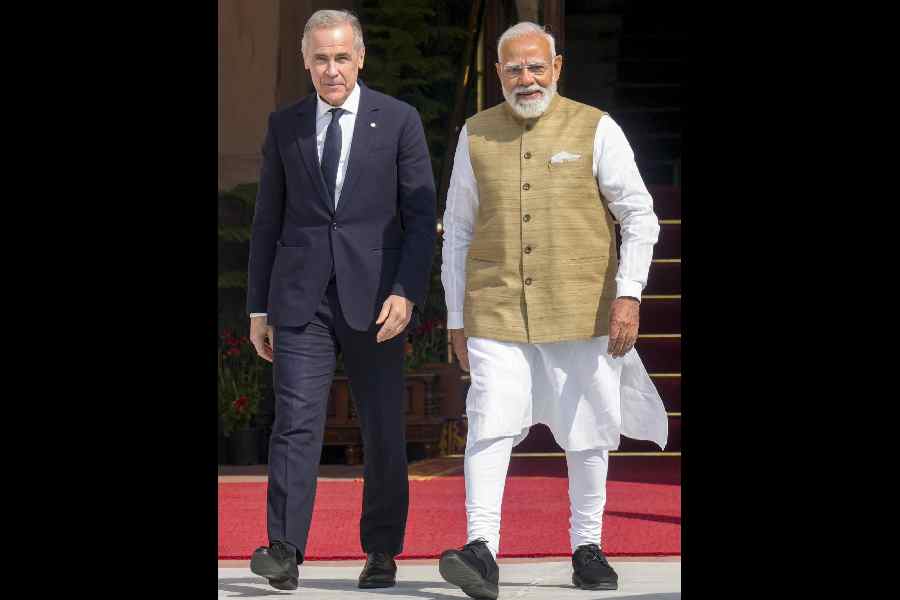|
|
It is not often that a bold foreign policy initiative brings domestic faultlines to the fore. The truncated visit of the feisty Israeli prime minister, Ariel Sharon, did just that. On the one hand was the silent applause of a self-confident India — not least in the diaspora — impatient with the inherited baggage of the Cold War and anxious to strike new alliances on the strength of shared values and common interests. On the other hand were the antediluvian voices from other centuries, a revealing combination of commissars and clerics.
The issue wasn’t either the creation of a Palestine state or the controversial past of the visitor. Coming as it did on the eve of the second anniversary of 9/11, Sharon’s two-day visit was deeply symbolic. It pointed to India’s mental willingness to transform itself from a passive victim of terrorism to becoming an active combatant in the war against terror. The transition, needless to say, is still woefully incomplete. Yet, the very fact that a previously undercover relationship which, incidentally, dates back to Rajiv Gandhi’s premiership, is now being flaunted is itself significant. In the past, India’s relationship (rather, non-relationship) with Israel was governed by local Muslim sentiment — “Palestine has become the global symbol of Islamic victimhood” — and a fear of Arab retribution. Fortunately, national interests have bypassed sectarian concerns and ties with Israel have been taken beyond the purview of a hyphenated relationship.
Israel’s importance doesn’t merely stem from either its acknowledged expertise in counter-terrorism or its reliability as a supplier of sophisticated weaponry. It is, after Britain, the foremost ally of the United States of America. Developing special strategic ties with Israel is tantamount to accepting a role in the complex chain of relationships that define Pax Americana. The Israeli deputy prime minister, Yosef Lipid, stated this quite explicitly on Wednesday: “There is American support for this unwritten axis.” Unless domestic political upheavals unsettle the process, there is a likelihood of Washington’s energies being complemented by a concordat of democracies in which New Delhi, Jerusalem and, hopefully, Ankara, play important roles.
For India and its enterprising diaspora, there is an additional benefit. A vibrant relationship with Israel opens the doors for a strategic partnership with the highly influential Jewish lobby in the US. If carefully nurtured, it could end up as a mutually rewarding marriage between old and new money, with Indians providing the energy and numbers, and Jews the political clout and networking expertise. A working relationship has already been established — as evident from the remarkably forthright speech of the principal secretary, Brajesh Mishra, to the annual American Jewish Congress dinner in Washington last May — and Sharon’s visit will help it acquire greater momentum. Indeed, the cementing of Indo-Jewish links at the community level should now be the priority of Indian diplomats in the US and, for that matter, in Britain. The spin-off benefits for both countries are potentially very high.
At the end of the day, however, opportunities are what the players make of them. Prior to the 9/11 attacks in New York and Washington, India’s fulminations against terror attacks in Jammu and Kashmir by jihadis from the Afghanistan war were hardly heeded. On the contrary, during the first administration of President Bill Clinton, US officials actively encouraged separatist forces like the Hurriyat Conference and even turned a blind eye to the taliban menace in Afghanistan. Today, the mood in the US is different. There is a realization that Islamist terror groups, whether they go by the name of al Qaida, Hamas, Hizbollah or Harkat-ul-Ansar, are linked by a common antipathy to everything Western civilization holds dear. The avowed zero tolerance of terrorism is as much governed by the need to defend a way of life as with homeland security.
For India and, for that matter, Israel, Osama bin Laden is in many ways an unintended saviour. What was hitherto a lonely battle has caught the American imagination. It is inconceivable, for example, that the humiliation heaped on India by the hijackers in Kandahar — in league with the taliban — on the last day of 1999 will be repeated. Then, the US was half-hearted in pressuring the authorities in Dubai to prevent the hijacked aircraft from taking off. Today, we are more likely to witness a US-sponsored replica of the audacious Israeli rescue at Entebee. Israel has been quick to grasp the change in environment. Always robust in its techniques of retaliation, it has now perfected the art of pro-active counter-terrorism. The “targeted killings” of Hamas leaders may trigger more suicide bombers and a self-perpetuating cult of martyrdom, but in the diplomatic arena the pressure is on Yasser Arafat to dismantle terror groups as a precondition to meaningful talks on a separate Palestine state. “No dialogue with terrorists” has become an accepted principle of international relations.
If India had grasped this instantly, its response to the post-9/11 world would have been more sure-footed. Despite periodic assertions of fighting the terrorist problem on its own, New Delhi has always looked to others to facilitate a solution. It has looked to Washington to tighten the screws on General Pervez Musharraf, just as it is now looking to Israel to revolutionize counter-terrorism strategies within the country. Just as the liberation of Afghanistan from the taliban menace was secured through nominal investment in the Northern Alliance and no physical involvement in the war, there is a fond hope that something similar will recur in Pakistan. An America, exasperated by the shenanigans of the Inter-services Intelligence in Afghanistan and elsewhere, will, it is hoped, finally crack down hard on Pakistan and thereby put an end to our jihadi problem.
It may yet happen that way but there is little point believing that low investment will invariably fetch abundant returns. Strategic relationships are not built on gestures alone; their success depends equally, as the Israeli delegation stressed repeatedly, on reciprocity. India has enormous expectations from Israel and so does Israel from India. Yet, the process will not be assisted if the supply of the Phalcon radar system is accompanied by India maintaining its dismal record of voting for anti-Israel resolutions in the United Nations.
At the heart of the matter is India’s imperfect transition from being a weak state to a nuclear power. The dreary extension of the hand of friendship to slippery dictators isn’t only born out of conviction and temperament. As Robert Kagan has explained in his Paradise and Power, a lucid account of the US-Europe rift, tolerance is the only realistic response of weakness. America invoked it till the end of World War I when Europe called the shots militarily. Today, the boot is on the other foot with “old Europe”, quite understandably, turning its back on its own history.
To translate the inspiring language of Wednesday’s joint statement, therefore, necessitates a mindset change in India. It is neither desirable nor practical for India to emulate the anti-terrorism strategies of Israel. Expediency, however, demands that the new relationship with Israel is elevated to the level of a genuine strategic partnership. At the end of the day, both countries are keen that a successful war against terrorism cannot be fought without the participation of the only country whose definition of national interest is not circumscribed by geography. That means persuading Washington that our war is their war too. Conversely, it implies demonstrating that their war is our war too.
New York, Washington, Jerusalem, Hebron, Srinagar, Mumbai. We are in it together.

